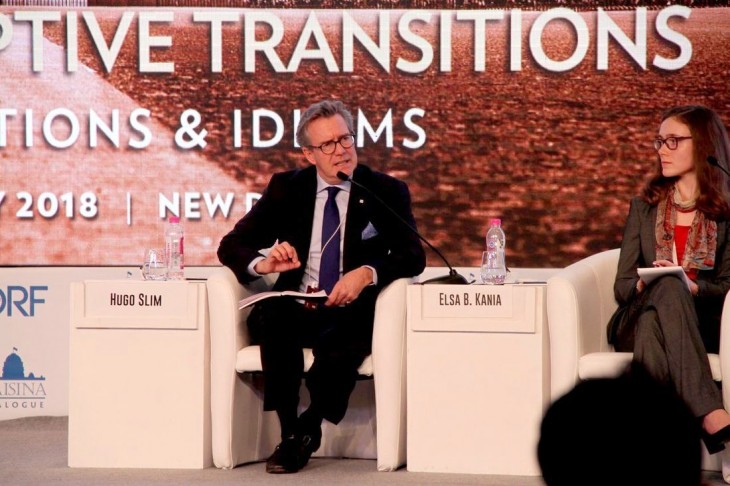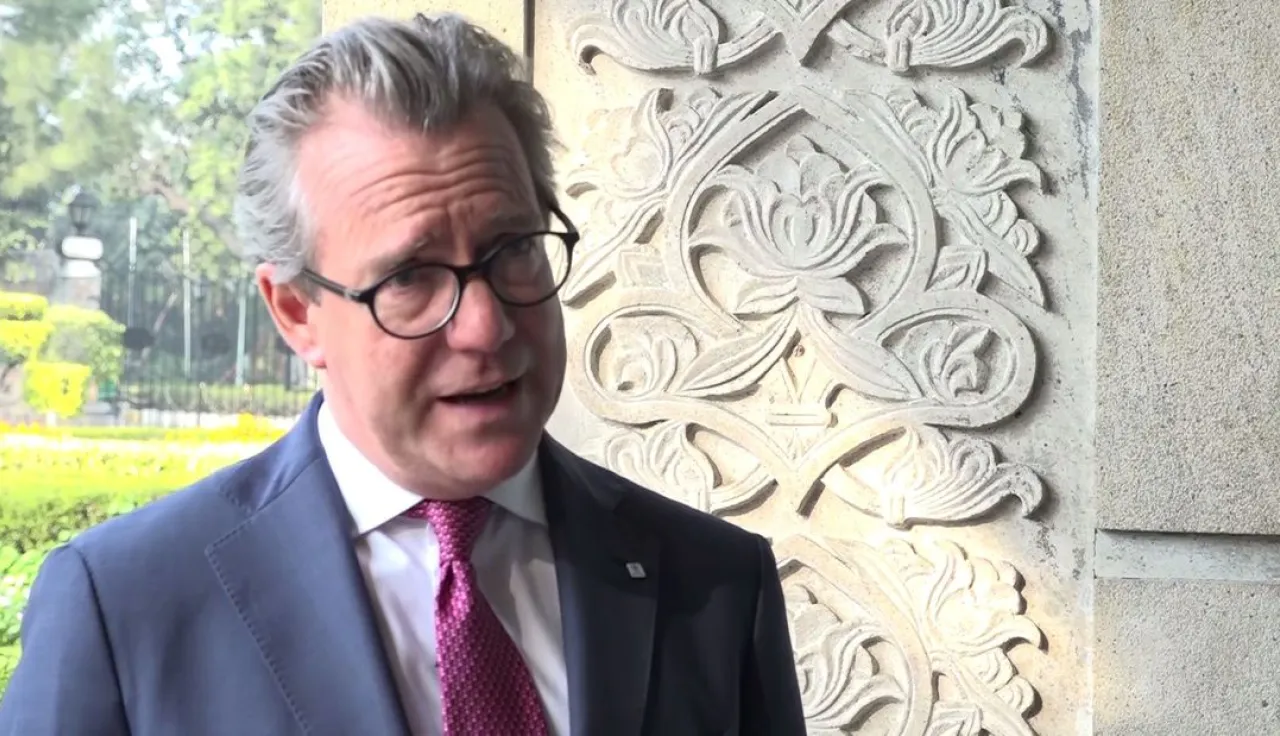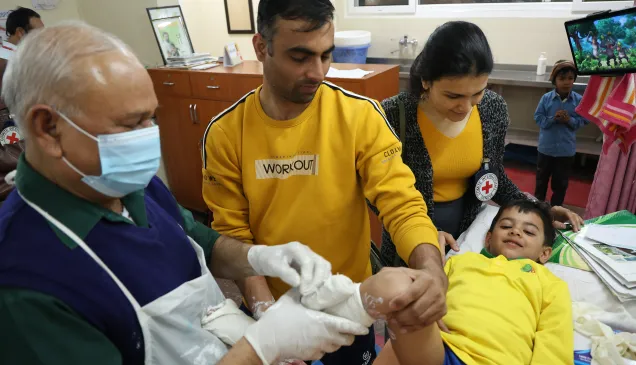Dr Hugo Slim, Head of Policy and Humanitarian Diplomacy at the ICRC, visited New Delhi this week to speak at the Raisina Dialogue organised by the Ministry of External Affairs of India and the Observer Research Foundation 16-18 January 2018. This visit also allowed him to have discussions with a wide range of stakeholders in the government, academia and with representatives of various think tanks on key humanitarian issues with a focus on innovation and new technologies.
The key message of Slim's address at the Raisina Dialogue was that India's expertise and diplomatic influence is essential for addressing the urgent challenges of autonomous weapons. He underlined the need for States to agree clear and lawful limits to their development and use as soon as possible.
Speaking to a packed hall, he spelled out three aspects of the challenge of autonomous weapons: legality, operational principles, and ethics. Slim drove home the point about the significance of taking an autonomous humanitarian pause, illustrating it using the examples of Bhishma and Arjuna from the great Indian text of Bhagvad Gita.

Dr Hugo Slim, Head of Policy, ICRC speaking at the Raisina Dialogue in New Delhi on 18 January 2018. ©ICRC, Ashish Bhatia
The Raisina Dialogue panel, moderated by Amandeep Singh Gill, Ambassador and Permanent Representative of India to the UN Conference on Disarmament in Geneva, was titled 'Conflict, Rights and the Machine: Addressing the Evolving Methods of Warfare'. Slim shared the platform with Lydia Kostopoulos, Advisor, AI Initiative, The Future Society, Harvard Kennedy School and Elsa B. Kania, Adjunct Fellow, Technology and National Security Program, Center for a New American Security.
As part of his visit, Slim also spoke to students and faculty at Aryabhatta College, Delhi University on 'Current International Crisis: Humanitarian Challenges and Diplomacy' on 15 January 2018.
Read the full speech delivered by Hugo Slim at the Raisina Dialogue.




